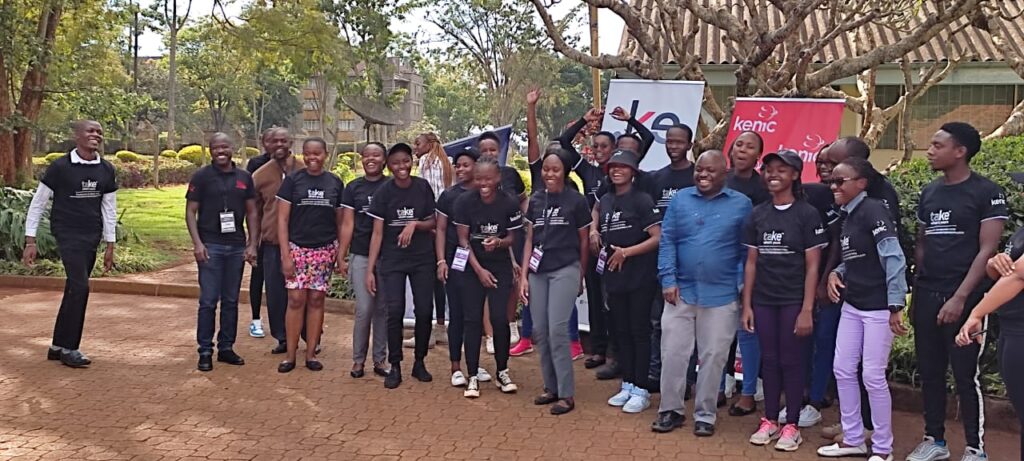Empowering sustainable connectivity
Through the Empowerment Program, ISOC provided different ways to to increase equitable access to connectivity, from trainings in how to install networks to increasing digital literacy to people worldwide. 48percent's contribution supported the operation.


Equitable access to connectivity is not obtained only one way. It requires a multitude of solutions to fit the needs of local challenges to connectivity. In 2022, we contributed to the Internet Society’s ‘Empowerment Program’. Through several trainings and activities, they provide alternative means to increase connectivity. In this blog, we will take a deeper look at the outcomes of our collaboration on this project.
What was the original aim of the project?
48percent’s contribution supported the operation of Internet Society’s Empowerment program. The training and fellowships in our Empowerment program aim to help people from around the world gain the skills they need to build, maintain, and champion an open, globally connected, secure, and trustworthy Internet. Through this project we sought to advance digital literacy, narrow the digital divide, and empower people everywhere to build and shape the Internet for generations to come.
Three highlights of our Empowerment program were:
- Being able to deliver the ‘Learning @ Internet Society Courses’. Internet Society offers practical training on topics important to growing and strengthening the Internet. Through these courses, participants can enhance their career skills and employability, connect the unconnected, and champion protocols that keep the Internet secure for the benefit of all users.
- Starting the pilot for the Designing and Deploying Computer Networks (DDCN) course in Kenya. This face-to-face training program was designed to help learners develop the practical technical skills that are needed to close the digital divide and to promote the inclusion of women in the tech workforce. The program combined classroom instruction, hands-on practice, and professional networking support for participants through internships.
- The Early Career Fellowship 2022 cohort. This Fellowship is open to early career professionals working in the Internet ecosystem. Through an organized series of courses, seminars, and events the Fellows develop their knowledge and skills to bridge the gap between technology and policy. Through networking, mentoring, and collaboration opportunities, they are forging a new, diverse generation of Internet champions who will be strong advocates for a strong and trustworthy Internet.

Who benefitted from this project besides direct program participants?
The DDCN course in Kenya had two phases – the first was one month of classroom instruction, and the second was a three-month internship at a local company. Eleven Internet Service Providers (ISPs) hosted the 25 interns. The DDCN course helped prepare new candidates for the companies’ workforces. By the end of the program, at least 3 of these ISPs planned to hire their interns as employees. The companies that had interns therefore benefited from the program, as they got new competent employees.
As part of the Fellowship program, each Fellow undertakes an independent project that contributes to the promotion, growth, and/or defense of the Internet. These projects can benefit localized populations or the larger Internet field in the form of research that advances understanding of the challenges the Internet faces today and possible solutions.
A few examples of Fellows’ projects that benefited others this year are:
Creating and running a social media campaign on end-to-end encryption in Portuguese to help Brazilians protect their privacy online.
Developing digital literacy inclusion training and policy to promote the use of mobile technologies to improve literacy among Haiti’s youth.
Helping civil society organizations in Indonesia strengthen their cybersecurity and resilience.
Designing and implementing an online tool to curb online child abuse and cyber bullying in Nigeria.
Empowering marginalized communities in the United States to have an active role in online content moderation decisions.

Were there any unforeseen challenges that happened throughout the project?
Learning @ Internet Society Courses: Due to the COVID pandemic and to our desire to reach as many learners as possible at a low cost, most of our course offerings are online. Our enrollment numbers are high, indicating a high level of interest in the topics we cover, but course completion rates are only 25%. We surveyed this group (people who enrolled but did not complete courses) to gain insight into this finding. The most common responses were related to lack of time to attend the sessions and meet deadlines and technical difficulties (limited Internet connectivity or lack of access to a computer or device to log on). These are real, practical challenges we don’t have control over, but we will continue to seek solutions to overcome them.
Since the DDCN in Kenya was a pilot project, we learned a lot by trial and error. One unforeseen challenge was the level of support our young adult learners needed, beyond the planned technical topics of the course. For example, we offered small stipends to participants to help them cover the cost of transportation to the training and internship sites. However, since many participants did not have bank accounts, payment logistics were difficult. We provided mentoring and support to help them open bank accounts. Similarly, when it was time for participants to apply for their internships, many needed support with creating a resume and cover letter. We therefore organized a full-day workshop with Digital Opportunity Trust to help participants write their first resumes and cover letters.
Early Career Fellowship: Since this program was fully online, we anticipated that Fellows from regions with lower Internet penetration might face difficulty joining the live sessions and accessing video recordings. Therefore, we offered a connectivity stipend to participants who needed funds to improve their Internet speed and bandwidth. Yet, we discovered as the program progressed that these stipends weren’t always enough. After we invited Fellows to candidly give feedback, we realized that we also needed to share audio recordings (not only video recordings) of the sessions to make the materials more accessible. We learned that inequity presents itself in many forms and we must foster open conversation to address it.